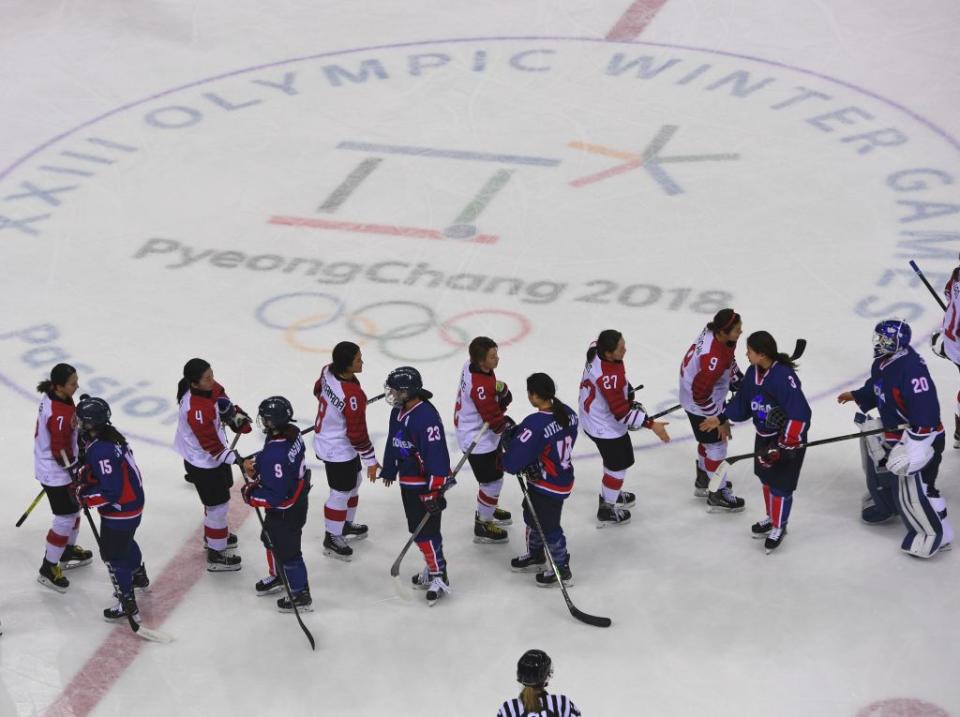Olympians are told to fist-bump, not shake hands, to prevent the spread of norovirus
Best known for infecting cruise ships and classrooms, the notorious norovirus is currently having its way with Olympians in PyeongChang. In an effort to avoid any further spread of the virus, officials are reportedly encouraging the athletes to ditch the sportsmanship tradition of handshakes. But is their suggested solution — the fist bump — any better?
According to reports from the Washington Post and the Associated Press, among others, norovirus is spreading through the Olympics in South Korea and, specifically, “Officials have told [hockey] players to fist-bump each other rather than shaking hands to prevent transmission of norovirus, which is highly contagious.” With cases rapidly on the rise, norovirus is making its best efforts to medal in maladies during the global athletic event.
Not all the athletes are dropping the handshake. The women’s hockey teams, including the U.S., which defeated Finland on Monday, decided the traditional handshake ritual was more important than the risks of getting sick.

The risks with norovirus aren’t trivial. While there are multiple strains of norovirus, typical symptoms once you succumb include fever, muscle pain and aches, fatigue, vomiting, and diarrhea. Among those quarantined in South Korea is the 62-year-old father of U.S. hockey player James Wisniewski. As the player described to USA Today, “He was in the taxi line and started throwing up. They had to call an ambulance. It was pretty bad.” So, it’s not just the athletes at risk, but their support teams, spectators, and family members as well.
According to the U.S. Centers for Disease Control and Prevention, people become sick with the virus most often when they are exposed to contaminated food or liquids, but touching anything infected with the virus — like someone’s hands — and then touching your own nose, mouth, or eyes, is another high-risk way to fall victim.
Can the fist bump actually help quash the spread of the nasty bug? According to some small but telling scientific studies, the greeting can actually help. According to one study in the American Journal of Infection Control, a handshake can expose you to 10 times as many bacteria as the fist bump can. Another alternative, according to the study, is the good old high-five. Here’s hoping they keep the Olympians safe from further harm.
This is not the first time that Olympic handshakes have become a topic of conversation. During the Summer Games in London in 2012, British athletes were told to avoid shaking hands to minimize the risk of getting sick. The advice was heavily scrutinized at the time, to which the British Olympic Association’s chief medical officer said, “The greatest threat to performance is illness and possibly injury. We are talking about minimizing risk of illness. It is all about hand hygiene.” Six years later, the same advice still holds.
Read more from Yahoo Lifestyle:
The norovirus making everyone sick just infected two athletes at the Olympics
Olympic skier Mikaela Shiffrin is a regular napper, and it’s something to emulate
A New Drug Could Treat Herpes Simplex-1 Virus More Effectively Than Ever
Follow us on Instagram, Facebook, and Twitter for nonstop inspiration delivered fresh to your feed, every day.
